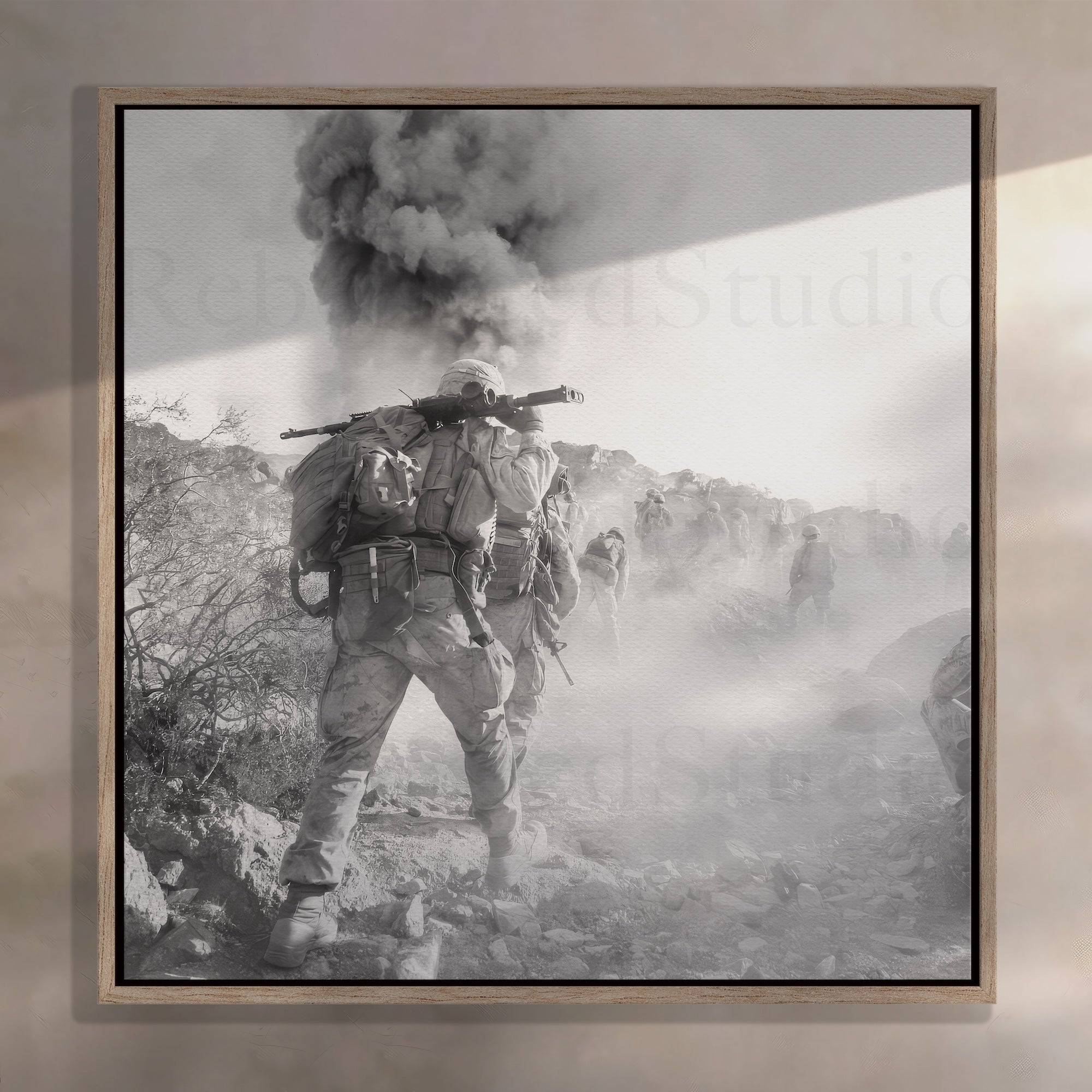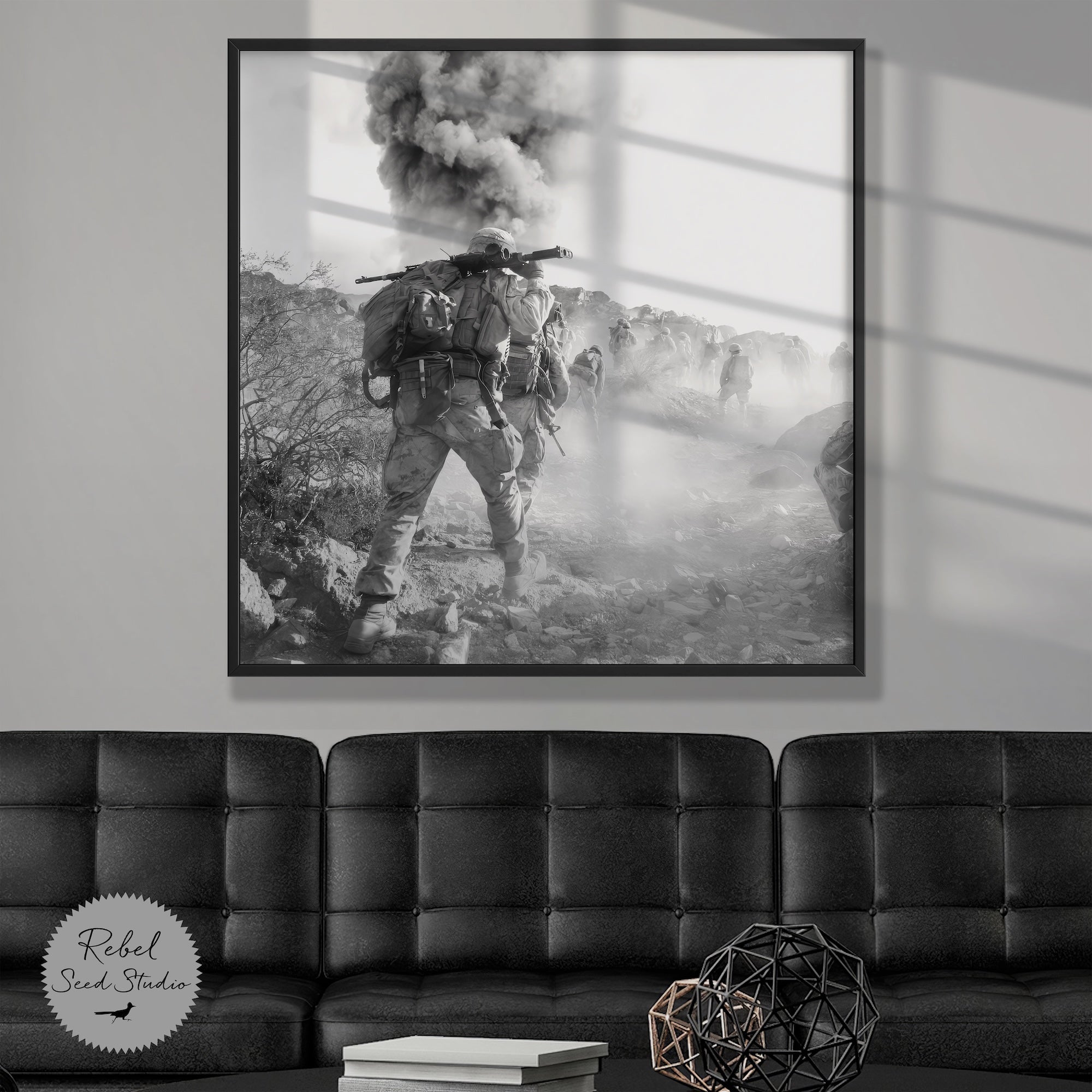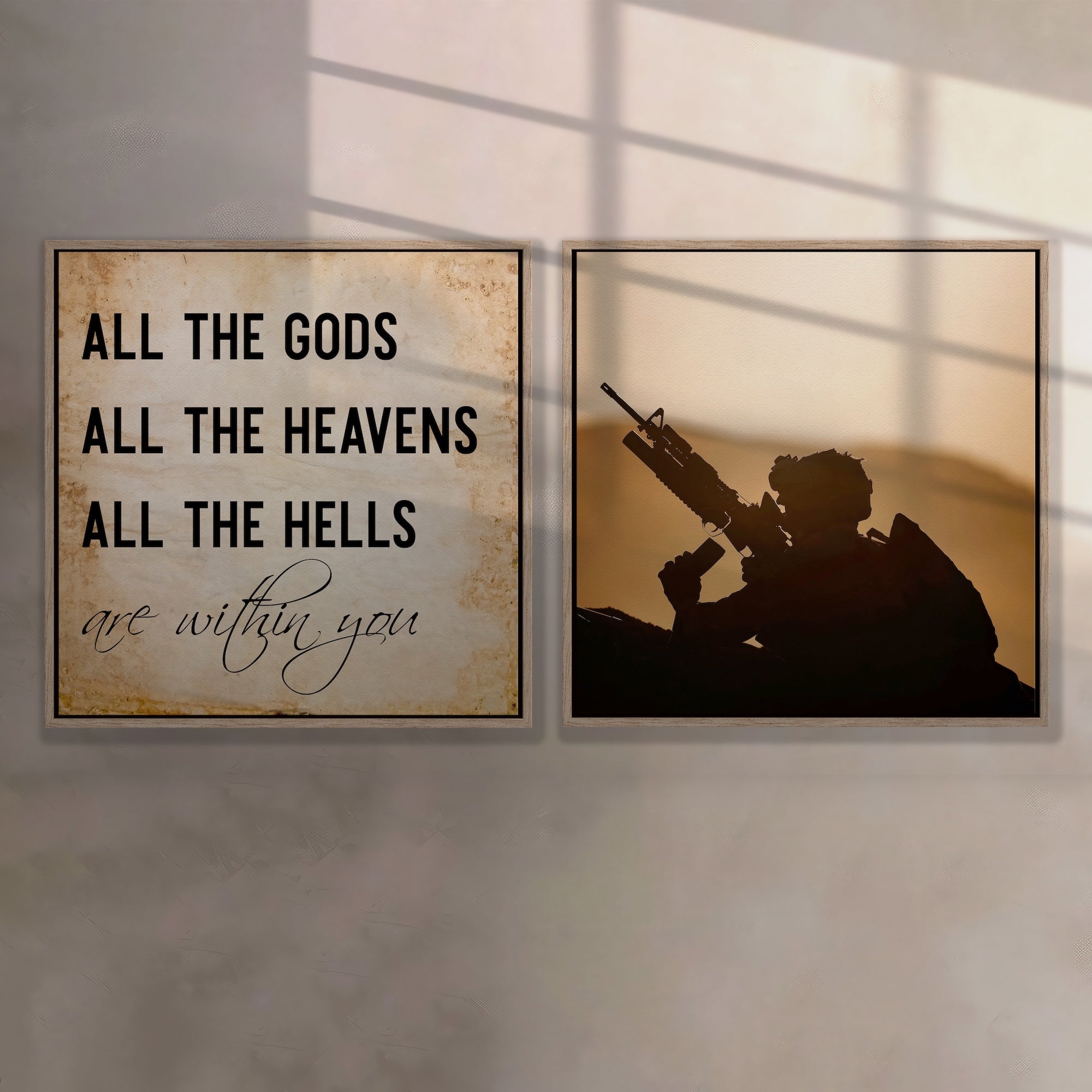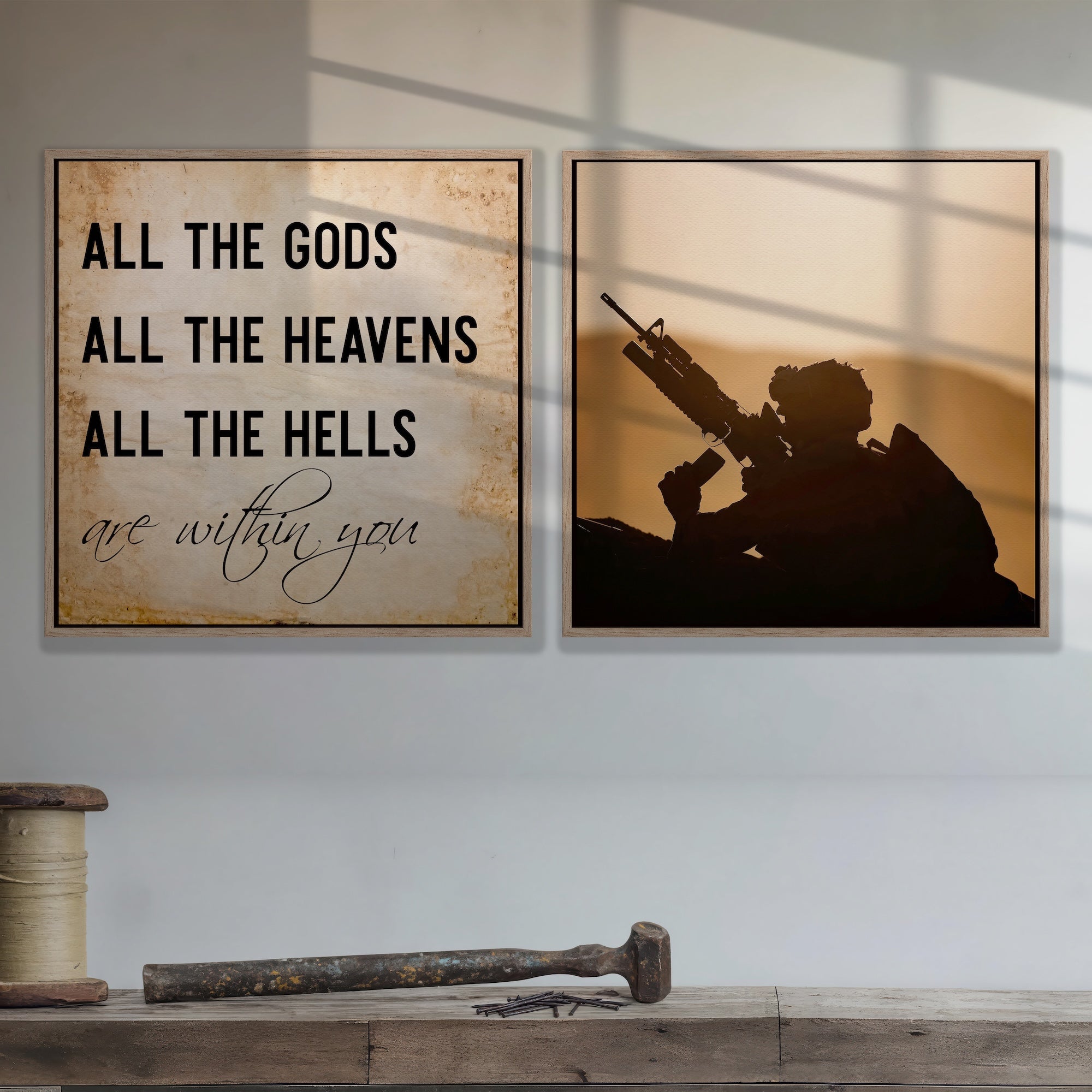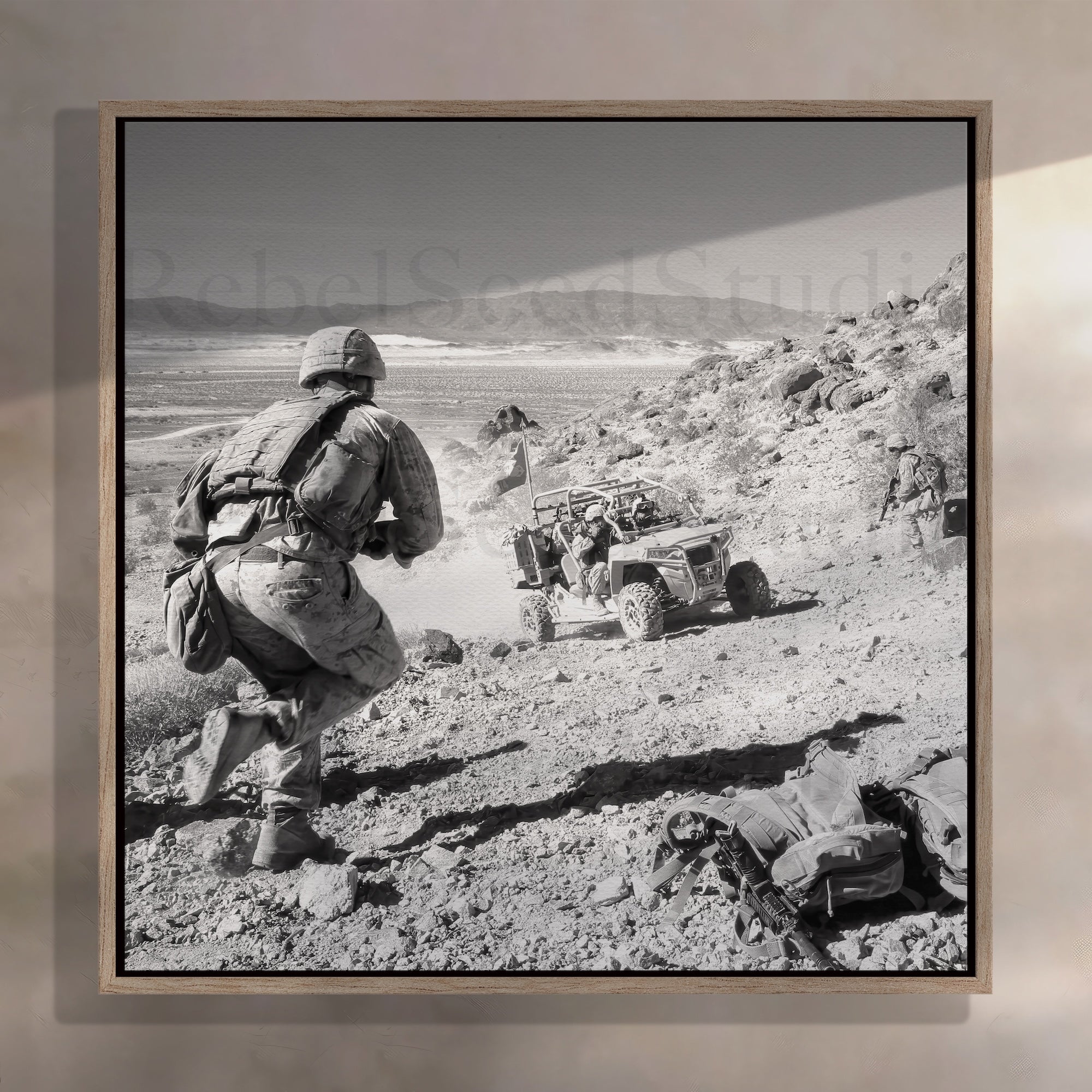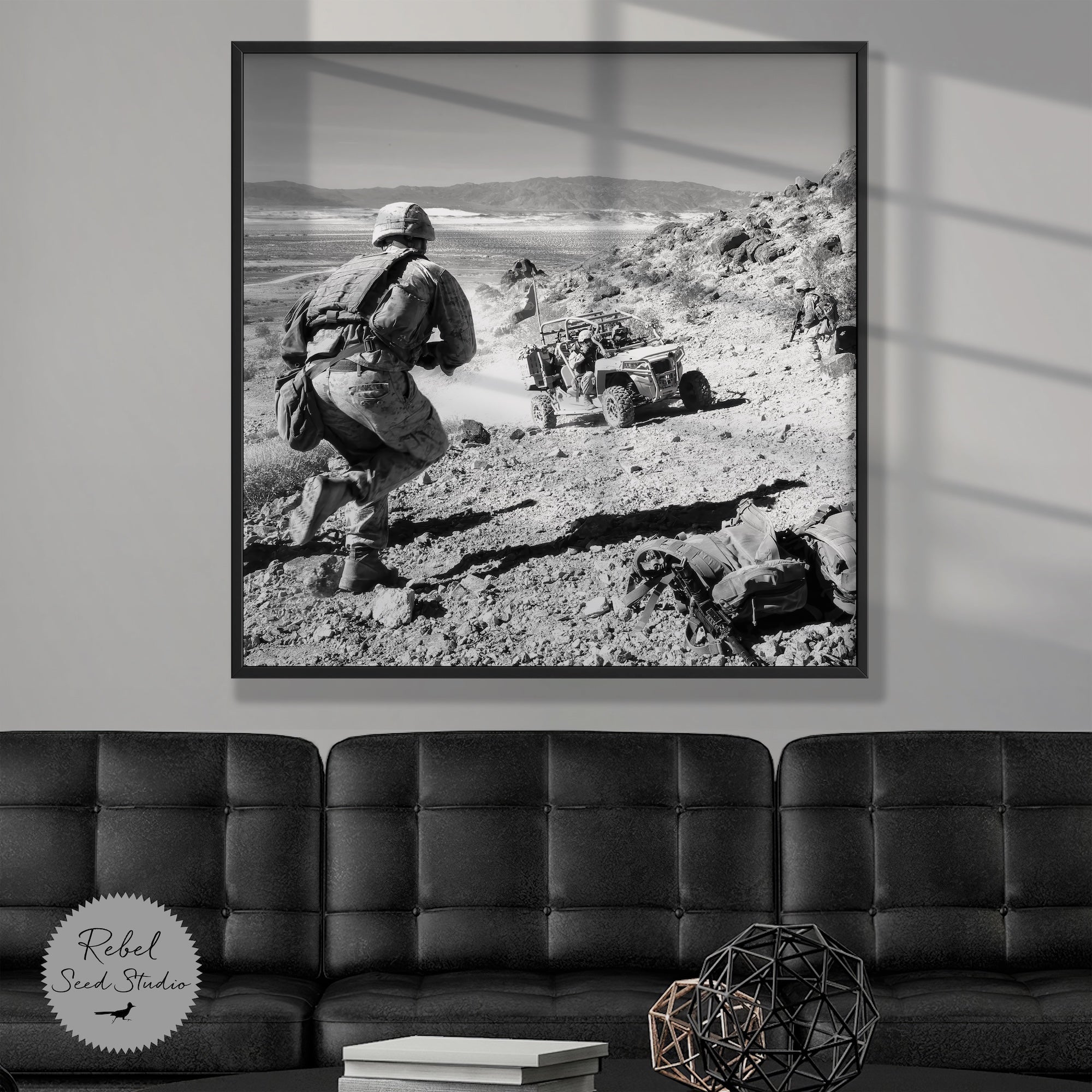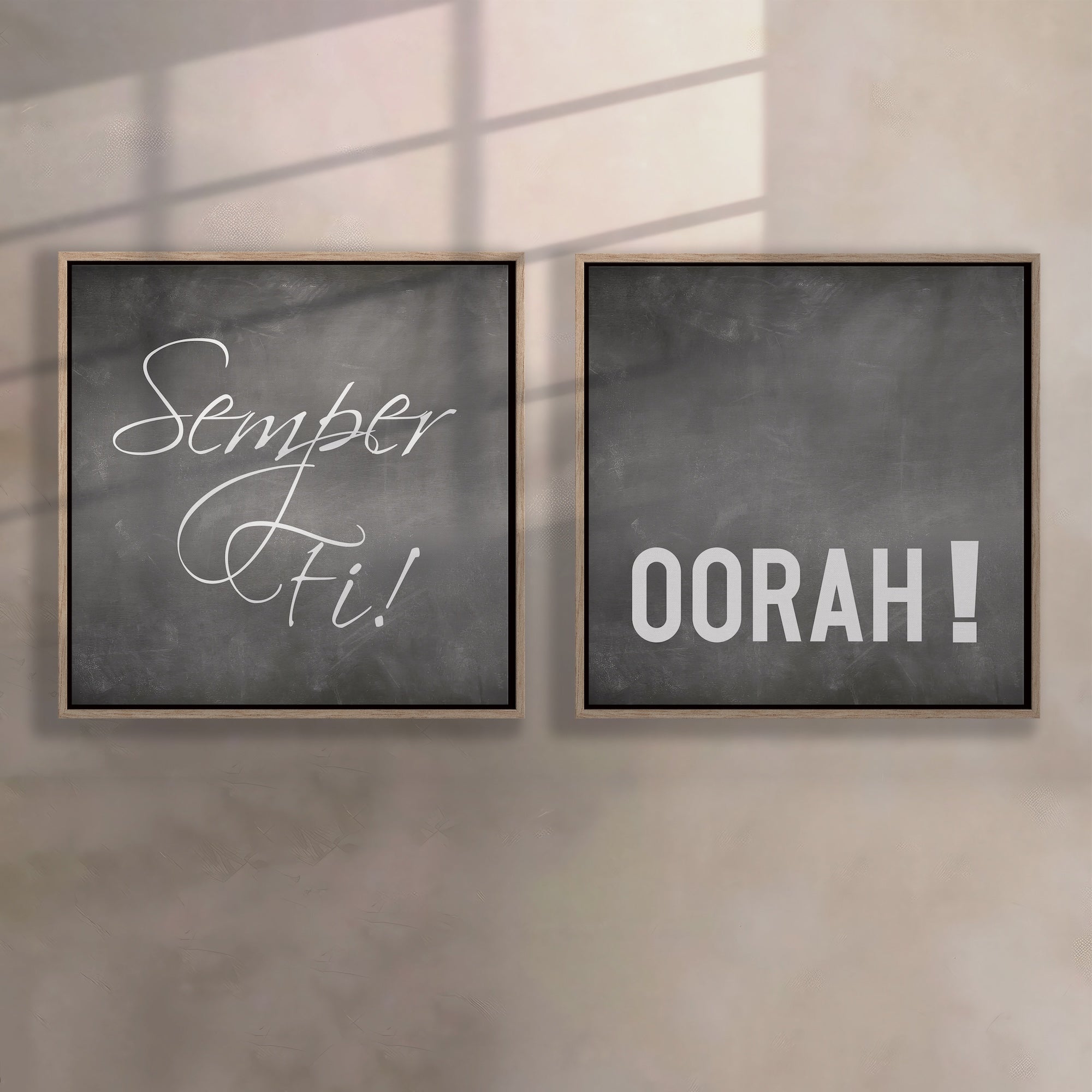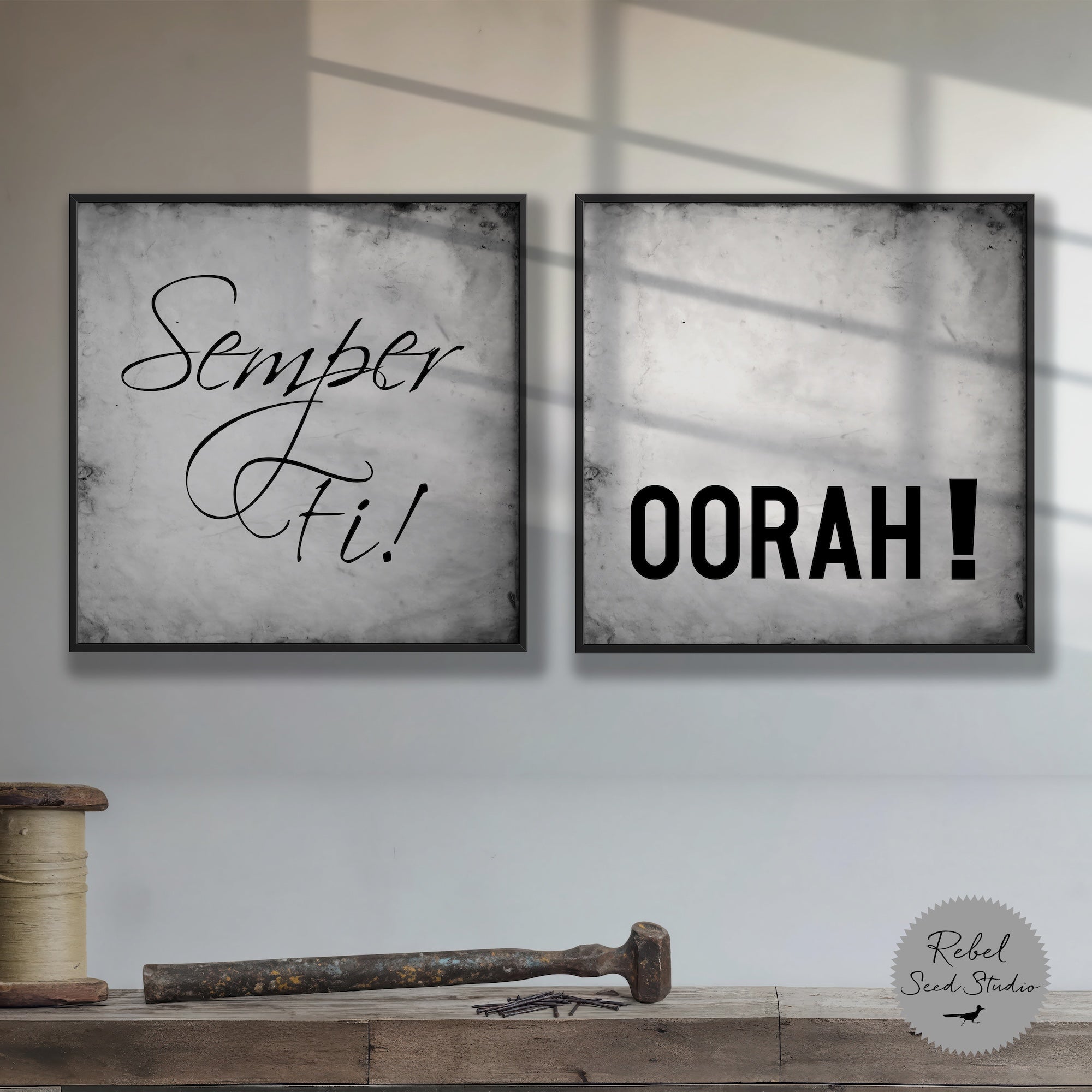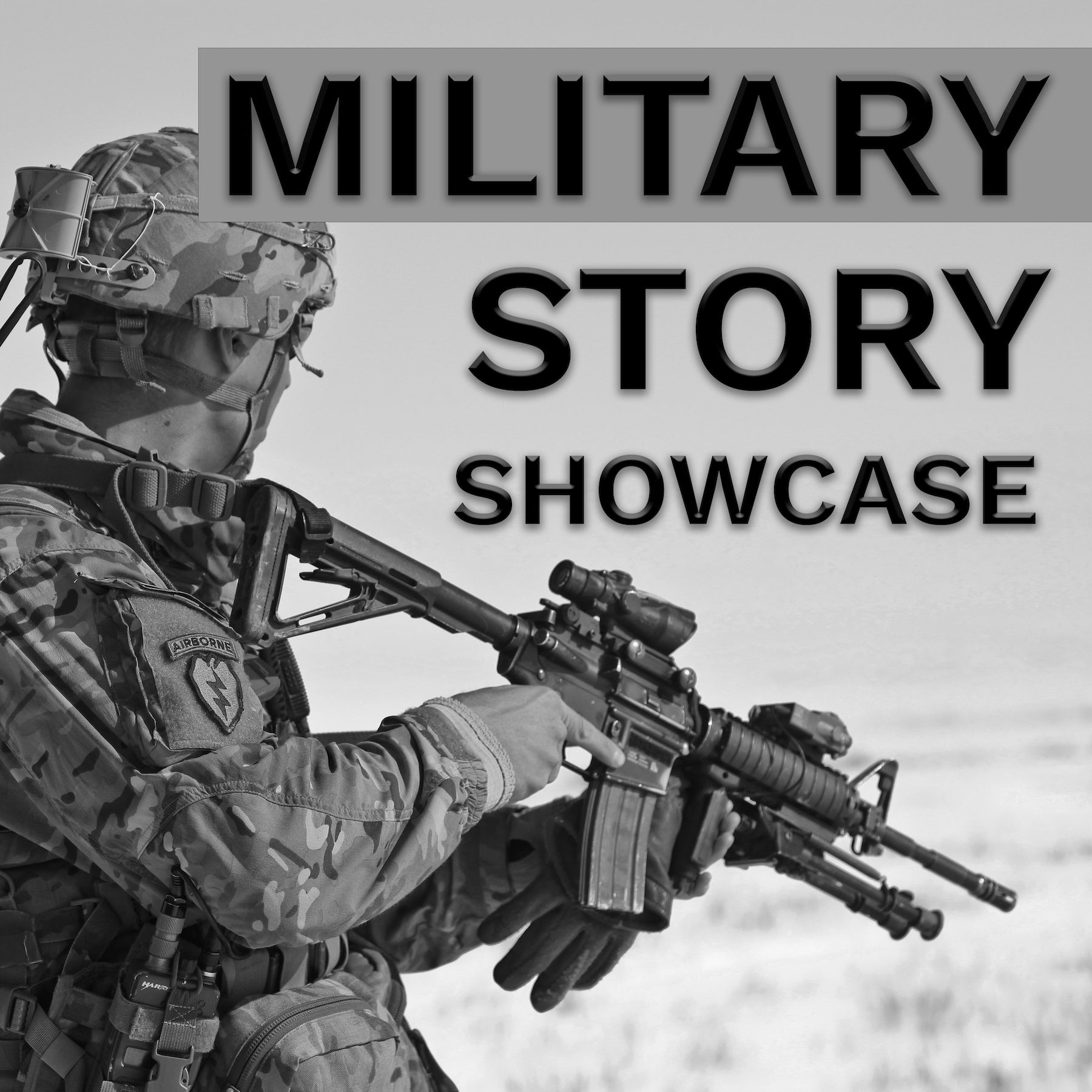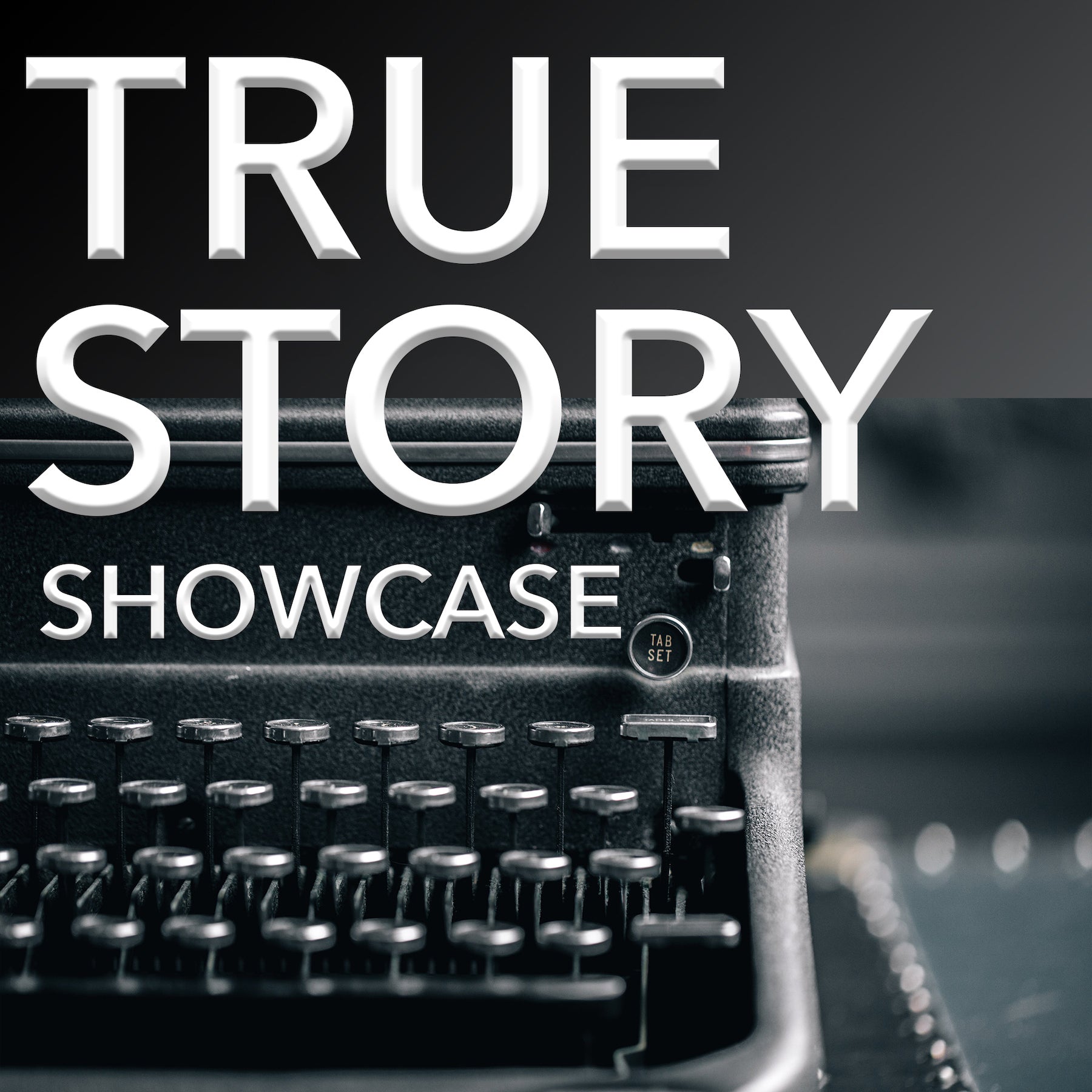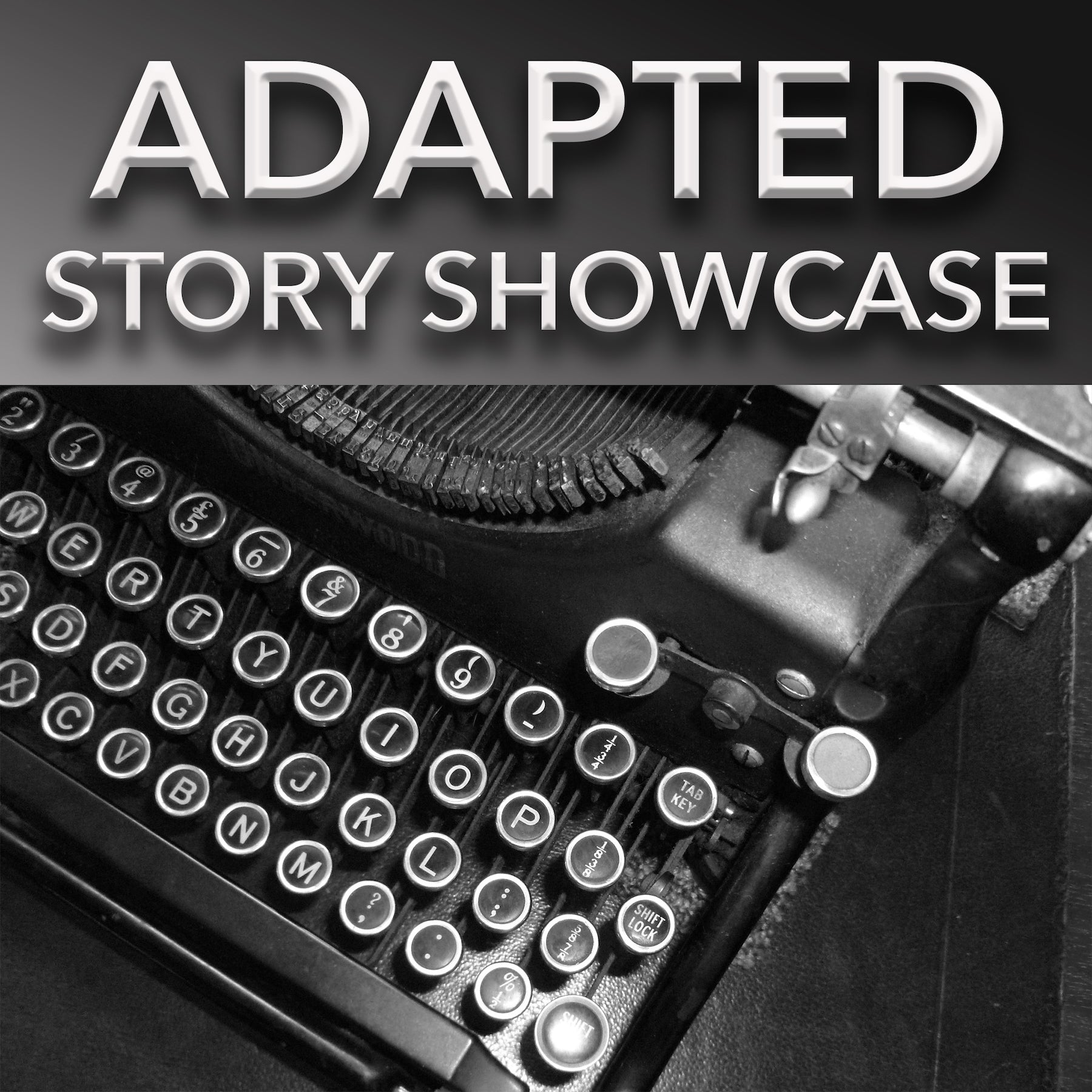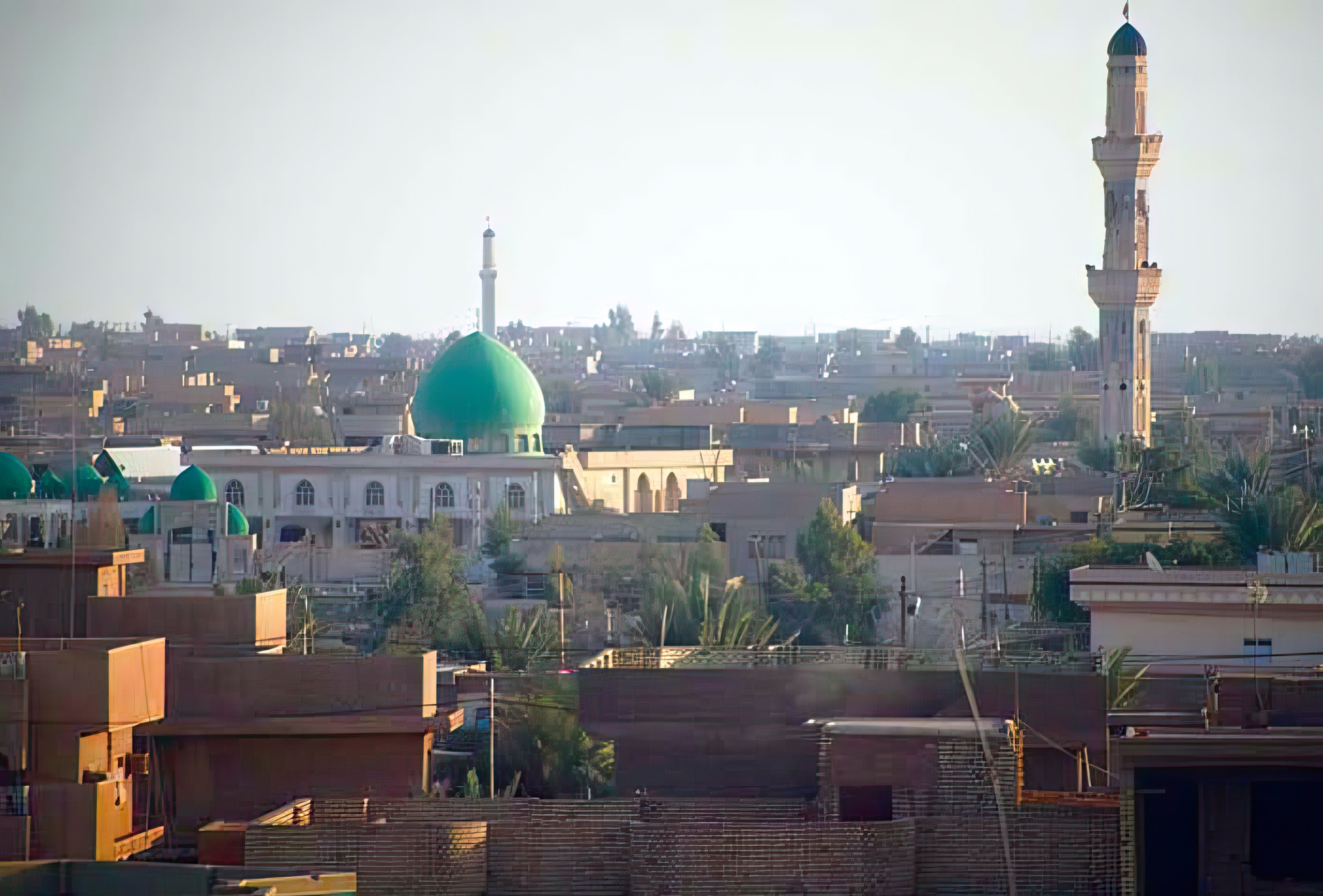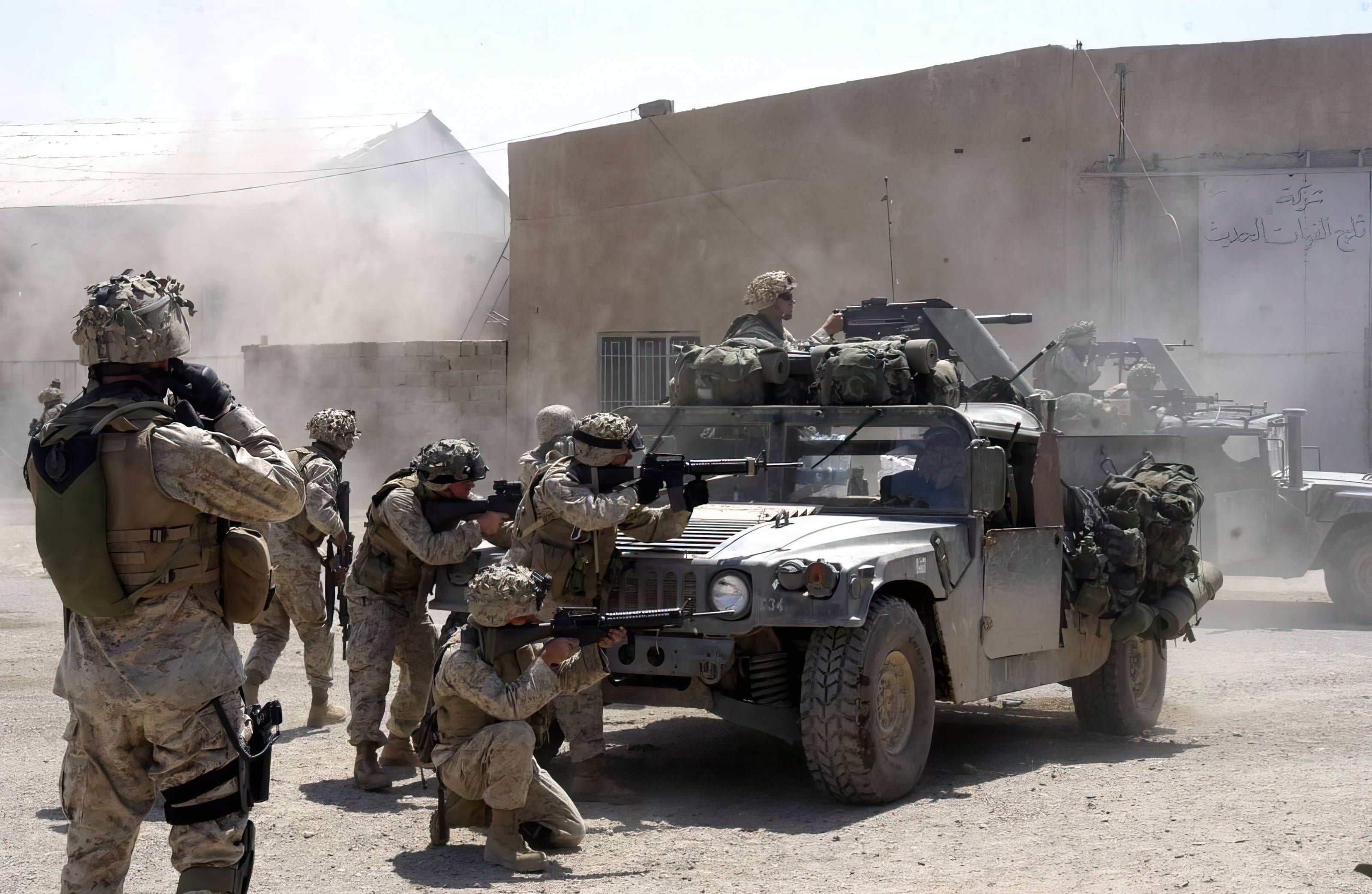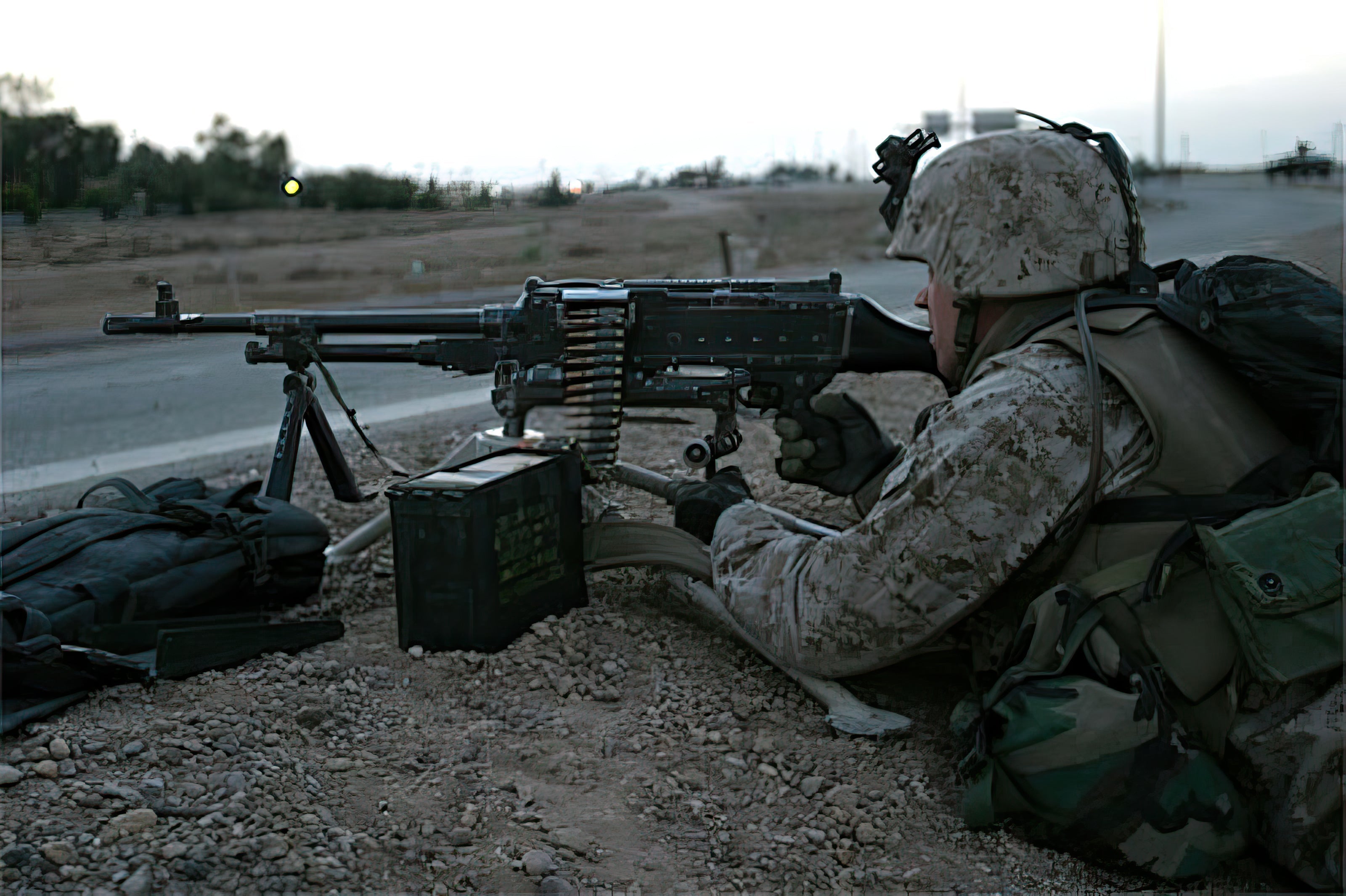
Battlefield Fallujah - Episode 2: A Long, Hot, Dangerous Summer
After political decisions forced the Marines to withdrawal from the city, Fallujah becomes a sanctuary for insurgents who stage deadly attacks on Coalition Forces and anyone who dares to help American troops. Meanwhile, military leaders attempt to work with the Fallujah Brigade, and new warriors arrive in Iraq.
The Fallujah Brigade
By the middle of April, it was obvious that I MEF was not going to be allowed to take the city. The fighting had become a public relations nightmare and, if continued, could severely damage the forthcoming handover of the country. Lt. General James Conway felt it was up to him to find a solution. Muhammad al-Shawany, the newly installed Iraqi intelligence and security chief, suggested Colonel Muhammad Latif, a 66-year-old former Iraqi officer and an opponent of Saddam Hussein, who argued convincingly that the Fallujah situation could be resolved by military-to-military (Iraqi and U.S.) cooperation.
Latif proposed a security force of ex-officers and ex-soldiers from Fallujah to take over the city from the Marines. The choice was made to take a chance with the “Former Regime Elements,” even though they were suspected of being involved in the resistance. Thus, the “Fallujah Brigade” was born.
Colonel Joe Dunford: "The end state was to provide stability and security in Fallujah. And I think that the Fallujah Brigade was a concept of operations developed to get us to exactly that point, that we would support the Fallujah Brigade and get ‘em the weapons and the equipment that they needed, and they would establish security in Fallujah. That was the plan. I would describe the Fallujah Brigade, for whatever success we did or didn’t have, as one of the few options available to try to accomplish our ends in Fallujah."
The plan, as agreed to, called for the formation of 900 to 1,000 laid-off soldiers from Saddam Hussein’s army, led by their former officers, including 23 generals. They were to be paid—$150 for sergeants, $250 for majors, $300 for colonels—in U.S. dollars and given light infantry weapons. General Myers outlined the mission of the Fallujah Brigade, as it came to be known: “Deal with the extremists, the foreign fighters, get rid of the heavy weapons and find the folks who perpetrated the Blackwater atrocities.” Conway was more circumspect: “It was an effort to split the hard-core anti-coalition forces and the terrorists from all those others who were fighting for their city.”
Unfortunately, the Brigade was doomed from the start. Latif was ineffectual. Doug Zembiec tried to calm the men of his company after it suffered three dead and more than 50 wounded in the attack. “Your brothers did not die in vain,” he said. “We’ll give this a chance. If it doesn’t work, we’re prepared to go back in.” Brennan Byrne put the best face on it, saying “This is an Iraqi solution to an Iraqi problem.”
Within days of the brigade’s formation, Latif invited Mattis to a meeting at the Government House in downtown Fallujah, to demonstrate that the city was under control. Mattis accepted, perfectly willing to put Latif to the test, but, with a little insurance. Bryan McCoy’s battalion would be standing by, ready to come to the rescue with tanks and armored vehicles, and Colonel John Toolan would be overhead in a command and control helicopter.
Before leaving, Mattis chatted with McCoy. “Bryan, I expect they’re going to shoot, but those bastards might be smart enough not to. You’re not to start World War III by yourself. If they hit me, get us out. You are not to take Jolan by yourself. We’ll come back and finish the job. There’s nothing I’d rather do than stand on the Euphrates smoking a cigar with my new best friends, those bastards.”
Mattis’s convoy of seven HMMWVs and Light Armored Vehicles (LAVs) was filled with shooters. Before leaving, he got them together and told them to expect trouble during the meeting. If that happened, everyone was to start shooting and not stop until all the insurgents were dead—and then they would fight their way out. At the appointed time, Iraqi police in orange and white Toyota pickups led the convoy into the city, following the route that the Blackwater contractors had used.
The shops along the way were closed, and only a few small groups of sullen men watched. Upon reaching the mayor’s office, they were met by Latif, the mayor, and two dozen local sheiks. After the exchange of polite greetings, the group sipped tea for the allotted 15 minutes, after which Mattis got back in his vehicle and drove back through streets lined with people dancing and singing, celebrating a great victory: “The Marines have surrendered", they shouted. Not a shot was fired at the convoy. Corporal Brian Zmudzinski recalled bitterly, “I just kept seeing assholes riding around in trucks cheering and firing into the air. I had no idea what was going on, except that I couldn’t do anything about it.” The city now belonged to the “inmates.”
The cease-fire agreement contained three straightforward provisions: Iraqi assumption of the city’s security before the Marines withdrew from advanced positions, surrender of heavy weapons, and the turnover of the Blackwater murderers. However, the devil was in the details. Every day, negotiators from the two groups met at the Fallujah Liaison Center. The Iraqis loved to talk, endlessly complaining about the Marine presence around the city, while proclaiming their own goodness. Their talk was contradicted by the actions of the insurgents. The Marine lines were bombarded daily by RPG, mortar, and small-arms attacks. It became painfully obvious that the Fallujah Brigade were stalling. At one point in a meeting, Mattis abruptly walked out, saying, “The Iraqis have never won a battle, or lost a negotiation.”
Colonel Mike Shupp: "The Iraqi Security Forces... absolutely and completely terrible. Traitors, people that we should not have invested a dime into ‘em. It was a joke. It was terrible. The Iraqi National Guard was so corrupt by self-interest and local family, imam, and tribal affiliations, that they were basically ineffective as an organization and could not do any security missions inside of this area of operation. Desertion was rampant. Officers would not show to work. The men were basically illiterate and poorly trained, and ill-equipped. And there was always some excuse. The leader of the Schwanis was under some intimidation, his wife and children were kidnapped. So, he was basically out of the picture and completely ineffective as a commander. Locked himself into his rooms and would not come out. As we came up to the battle, they basically decided that they took their last paycheck and went home, and they weren’t gonna fight the battle. Let someone else do the dirty work for ‘em. So, I have nothing good to say about them."
I MEF Deputy Commanding General, Brigadier General Dennis Hejlik: "The ING, Iraqi National Guard, totally dysfunctional. Most of them were integrated with the Muj, Mujahideen, if you will, we call them. But, that’s a short term for the insurgents. They really became dysfunctional. Not that bad to start with but, through intimidations and assignations, they just fell apart."
Mattis said about the insurgents. “These guys are not the brightest enemy in the world... all these people do is kill members of the household, they destroy power lines, destroy bridges, they set off IEDs that kill Iraqis - insurgents are not dignified.”
A Long, Hot Dangerous Summer
The disarmament of the terrorists, which the Fallujah Brigade promised, never materialized.
Colonel Shupp: "I recognized that Fallujah was the safe haven and was the center of all of the enemy’s operations. Our Marines were on outpost, LPOPs along MSR Mobile and then Camp Delta in Karma, and at the prison in Abu Ghraib, and they were just taking poundings with indirect fires. We were starting to learn that we couldn’t stay at places like Camp Baharia and Camp Fallujah. Those are the satellite camps where the two battalions were located at, 3/5 at Camp Baharia and at Camp Abu Ghraib, 3/1, that we had to get into the field to take the fight to the enemy. So, there was a shift of mindsets with 3/5 starting to move operations from our fixed firm bases out into these outposts. They had to be reinforced with bunkers and HESCOs and they had to put towers up in each one, concrete towers along the highway. These positions had to be fixed, because the enemy was capable of attacking them from Fallujah. So, these Marines faced rockets, small arm attack, and indirect fire attack."
Insurgents used the city as a base of operations to expand into the outlying areas. They planted hundreds of IEDs along the main supply routes (MSRs), using debris to conceal their handiwork. The roadsides were littered with trash, automobile hulks, garbage, dead animals—anything that was no longer of any use was dumped on the shoulder of the roads—making it extremely difficult to spot danger. The men in the convoys were involved in real-life Russian roulette with the insurgent bomb makers. Long stretches of the road network near the city acquired a perilous reputation. Insurgents slipped out of the city, planted explosives, and returned to their safe haven before American patrols could catch them.
Captain Theodore Bethea, commander of Charlie Company, 1st Battalion, 8th Marines, discusses the standard operating procedure when encountering IEDs: "They really look at it as the four Cs, the best way to probably look at encountering an IED. First you confirm it, control the area, you clear everything in zone, and then you cordon it, and make sure that nothing can now get in or out. Basically, if you’re in a vehicle and you hit an IED, the tactics have changed now on how to counter this threat. Our initial training taught us to immediately dismount, provide a perimeter, and usually that is where now secondary IEDs and mines are awaiting you. So, what we do now, is we push through the kill zone, ensure that it's not a coordinated ambush, which can, a lot of times, be the case; set up security, assess if we have casualties, and if so, conduct appropriate MEDEVAC, and then, report it if it went off, and then if it didn’t go off, call it in so we can have someone come destroy it. The key thing is being mindful of where the enemy wants you to go and how they want you to react, because that’s where you will get more IEDs or face more mines or indirect or direct fire."
Fallujah also became a testing ground for developing increasingly sophisticated IEDs, including platter charges (a rectangular or circular piece of flat metal with plastic explosive pressed onto one side of the platter) and armor- penetrating shaped charges (a cone made of copper covers and an explosive charge, creating a hollow space in front of and along the axis of the charge. When exploded, the copper transforms into a jet stream of molten metal).
The material to manufacture IEDs was readily available from the huge stockpiles of unguarded commercial and military explosives left from the war. The insurgents used simple triggering methods—a cell phone, a garage door opener, a child’s radio-controlled toy, pressure devices—and ingenious hiding places, such as behind signs and guardrails, or under debris and even animal carcasses. A congressional report noted that “the typical IED cell consisted of six to eight people, including a financier, bomb maker, emplacer, triggerman, spotter, and often a cameraman. Videos of exploding U.S. vehicles and dead Americans were distributed to the Internet to win new supporters... and serve as confirmation that Americans are vulnerable.”
Corporal Robert Tanner's company, the Delta Company Outlaws, 2nd Light Armored Reconnaissance Battalion, 2nd Marine Division, who were in Fallujah during the first battle in April, were hit hard through the spring and summer of 2004, especially by IEDs: "Over the course of seven months, we lost eight Marines. We went out there with 155 Marines and eight Marines, unfortunately, never came home. Another 25 or 26 were wounded seriously. Another 20 to 30 were wounded but were able to go back in action. So, I think we figured it out and it was like a one-in-four chance that you were wounded or killed when you were out there within our Company. It was kind of a sad statistic. When we first went out there, I don't think we realized the severity of war. I think the first IED we encountered was bad enough, but our first loss in April, when we lost two really good Marines to a vehicle suicide bomber, that really hit home and brought the sense of war to our front door step and told us that this is real; this is what war is all about.
Unfortunately, we lost two really good Marines, [Cpl Joshua] Wilfong and [Cpl Scott] Vincent in April. The first of July that we lost another really good Marine, [LCpl] Tim Creager. And, only a couple days later, unfortunately, we lost another five Marines to another IED. Our biggest enemy out there was IEDs because we were a vehicle-mounted infantry company - that's what the insurgents were trying to take us out with is IEDs. The losses that we took were pretty bad. It hurt a lot. And, unfortunately, a lot of us are still suffering to this day. But, fortunately, we all have each other, and had each other at the time, to lean on in times of need."
Colonel Mike Shupp: "They’d go on the roads, they were taking IED attacks. In fact, before 2/1 left, they had a VBIED go into a 7-ton and kill 10 or 11 people, where the amour plate was just blown up. It was a devastating attack, just killed everyone in the back of the vehicle and in the cab. I think it was, might have been, one or two survivors out of the whole vehicle. A vehicle actually drove into the side of the 7-ton, laden with explosives and blew up. Our Marines, their job was to go up and down these roads and to make sure that the enemy was not capable of putting improvised explosive devices down there."
Lance Corporal Justin Boswood was with Kilo Company, 3rd Battalion, 1st Marines in Shahabi prior to going into Fallujah. His company swept for IEDs daily and attempted to connect with the local people: "Probably the most important thing that we did, we did the IED sweeps. It was just continuous. Always had two platoons out patrolling, sweeping IEDs, checking palm groves for mortar fire positions, and talked to the people. The people in town, Sir, they didn’t like us at all... maybe one or two of the people. I found one guy that was really friendly, and I made it a point that when we were out on patrols to try and stop in and take him pack of American smokes or some candy for his little kids. He was a good guy and we filled a couple holes in front of his road so he could drive his car around, and in turn he’d give us some Intel. So, if you’re nice to ‘em, and help ‘em out a little bit, they’ll try to help you as much as possible. But, for the most part, everybody there, just really hated us, resented us, and just wanted us to leave."
The Marines were initially deployed with unarmored vehicles and struggled to adapt as casualties increased. The Marines launched a major counter-IED initiative. Vehicles were “up-armored.”
Colonel Joe Dunford: "We went over there with, what they call frosted mold panels. Small, little panels that hang outside the door of a HMMWV, and then we went to 3/8-inch armor doors, and then we grew to the Marine armor kit, and then we grew to the 11-14s. So, it was a progression."
Unit supply struggled to meet demand, while many units welded “hillbilly” armor—plates of scrap metal—on the sides of their vehicles. In addition to armor plate, electronic jammer systems were introduced, which produced low-power radio-frequency energy to block the signals of radio-controlled initiators, including cell phones, satellite phones, and long-range cordless telephones.
Snipers with night vision devices were deployed along the most threatened roads, while unmanned aerial vehicles (UAVs) flew overhead with infrared cameras to locate and target the insurgents. It seemed, however, that as soon as one countermeasure was introduced, the insurgents produced a counter-countermeasure, in a deadly round of “can you top this?”
Lance Corporal Graydon Campbell, 1/8 CAP Platoon, Weapons Company, was in a convoy that was struck by an IED: "I’ve never experienced anything like it before. I would see the smoke before I would feel anything. Smoke... then I'd feel it. Then I'd see the flash. Kind of lets you know lets there’s really nothing you can do... try as hard as you can but you can't really see 'em. I mean, we passed by one IED - and it killed one of our Marines - we passed by it at last 60 times in one day. And we were getting ready to leave and we extracted, and it hit us. I was in the vehicle right behind it. When we were heading away from the IED before we hit it, there were a lot of kids standing around laughing and smiling at us... going like this, you know, [making motions] like they’re cutting their throats. That wasn't too odd, but it was something that kinda perked us up.
I was looking directly at one of the Marines - the Marine who got killed. He's sitting there [when] I heard the blast. I saw him kind of lean towards his left - saw all the other Marines in the vehicle get down. When the blast cleared, he was laying in someone’s lap. His face was gone, and he had a headset stuck in his Kevlar. His headset had gone through his neck. We collected up after that. Pushed the vehicle out of the kill zone. Tried to cordon off the area. It was kinda weird because, every vehicle was a white truck and every male - there was probably at least 100 males with shovels in a pretty small area - as soon as it happened, they all took off. We didn't know who the trigger man [was], where he was. Cordoned it [the area] off for about two hours. Ended up not finding the guy."
Lieutenant Colonel Willard Buhl’s 3rd Battalion, 1st Marines, experienced a particularly insidious IED: "They introduced some napalm type IED munitions, vehicle concealed IEDs with jellied gasoline in that burned. India Company had a very bad experience. We had seven men MEDEVAC’d from theater to the burn unit in Texas. Thankfully, faces were not severe to impair, disfigure, but the hands... we still have a couple of men who are still recovering. Sergeant Huffacker is a man who comes to mind, whose hands are still not quite right, this many months afterward."
Major General Richard Natonski's convoy was struck near the city of Hit by insurgents who had relocated from Fallujah to re-arm and were now terrorizing the citizens of the town. Force Recon Task Force HVT (High-Value Target), along with sniper teams, went into the city to take out the Mujahideen.
Captain Jason Schauble: "General Natonski, the Division Commander, his convoy got hit right outside of Hit. And, [a] KBR convoy got hit later that day right outside of Hit, and there were several vehicles missing. The intelligence picture that was painted for us was that there were Mujahideen from Fallujah that had moved up to Hit to re-arm and re-fit, basically were terrorizing local population, setting up IEDs, shooting at civilians, stealing cars, running around with black uniforms and red dishdashas. So, the Regimental CO said, 'Hey, I need you to go up to Hit and take a look at it.' So, we rolled out there. It was us, snipers from 1/23, and also some snipers from operational attachment Alpha 5/32, a special forces unit. So, that gave me close to 15 sniper teams to control, so I guess what we'll call this is Task Force Sniper. We had sniper positions on the north and south of an overpass on an east-west route going into Hit. Hit is a large city, but it's divided by what we call Route Mavericks. That's what the Marines call it. There are three traffic circles on Route Mavericks.
Our mission was to control the first traffic circle, the western most traffic circle. We saw enemy sitting in that traffic circle. Basically, the ROE that we were given is, if they have a weapon and you can reach out and touch them, then they are to go down because 1/23 had been in there a day earlier and received a lot of fire from the city - 1/23 snipers. We engaged the SASRs - would engage in the flanks because they had the furthest targets - we were engaged in the center, but literally that first morning it sounded like the 500-yard line of a rifle range 'cause forces were concentrating in the Stadium and north or the Stadium. Enemy would be running around, passing weapons over the walls, driving around with weapons doing drive-by shootings out of vehicles at our positions. Their fire was ineffective, ours was not. We had weapon systems that were capable of reaching out to a much longer range. We also had LAVs with 25-mm cannons that showed up and assisted us. And, we had Mk 19s, which gave us indirect fire capability. We got a number of kills each day on those scenarios. We called in rotary-wing close air support the first day. They fired two Hellfires, two TOWs, and did some gun runs on the Stadium bleachers.
During the actual invasion, when we went in, we found the IP uniforms that they had taken when they seized the Iraqi Police facility. We found the bullet-proof vests they had in there and Motorolas, so we knew they were talking to each other [while] running around the Stadium. The Stadium gave them a good vantage point where they could get up high and shoot at us, but also that we would not be shooting back at civilians. So, I believe that is why they chose that location to engage us. We held that position for 72-hours. We had PSYOPs attachments and <unknown word> to come out and assist us. That was my position until 1/8 came out. I kicked my southern position element into a building, basically to get a better position that was masked, currently masked, on that traffic circle. 1/8's mission was to seize all three traffic circles and re-seize the IP facility.
So, we went and seized that building. Bravo Company went and seized that first traffic circle. At which point, my Alpha element [and] everybody else I had, went into the school, which is a dominant vantage point that allowed us to see all the way down the road. So, I put all my other snipers up in there. They encountered very little resistance going into the city. We found a number of IEDs in there. We found two 155 rounds daisy-chained together and blew them on site and clipped the wires. We had positions on both the left and right side of Mavericks going east into the city. We held those positions until 1/8 decided the operation was successful and that the enemy was no longer in control of the IP station and of those traffic circles."
Task Force HVT was put together to specifically focus on removing high value targets.
Major David Morris, 2nd Force Recon, Air Officer and Forward Air Controller: "Colonel Tucker, he had this idea for a Task Force HVT. And, he asked our Colonel, Lieutenant Colonel Petronzio, the CO of 2nd Force Recon, to come up with a couple courses of action using a platoon from Force Recon as the nucleus for this Task Force HVT. And, what this Task Force HVT would do is go all over RCT-7's AO and kill or capture the high-value targets. Basically, 'The Top 10 Most Wanted' personnel in that area."
Captain Schauble: "We work for Regiment. They put together an intel fusion cell, which basically takes all the intelligence that's gathered through the province from the different battalions, because this is very much a battalion fight. Each battalion has its own area of operations. They have their own intelligence gathering mechanisms. They have to collect all of this intelligence up. A lot of the targets that we have in al-Anbar Province move almost continuously. They're in one city one day. one city the next day. They change cars all the time. They know that they're targeted by us. So, the only real way to try to track some of these people down is to put someone solely focused on targeting high-value targets. And, then have them collect all the intel that comes in from each group and so they get a fresher trail than if they just wait until the next time that guy comes into their AO. We chase these guys, whether it comes off of cell phone hits or whether it comes of of human interviews.
Some of the information we get comes from detainees. We detain guys with IED-making materials, or we detain guys with weapon caches. A lot of them talk. Whether it's the Human Exploitation Teams or Defense Human Services or any of the other groups that are allowed to - or have permission to - interrogate detainees, they provide us a lot of the information leads we have. We also have tactical isolation capability. We have a Marine who speaks Arabic, so he's able to talk to guys on site, and usually they give up information, such as, 'Well, this guy down the street does this', which leads us to another guy down the other street. At this time, we have captured one of the top ten high-value targets."
Task Force HVT gave focus to offensive operations. According to Captain Schauble, they worked well with other Marine units: "There's a lot of things that we're trying to do. Large scale, strategic things are trying to be done out here in Iraq. This at least gives a little bit of offensive focus. We've worked with a lot of different folks, whether it's from Alpha Company 1/8, or 1/7, 3/7. There's a lot of times we work with a lot of different Marine units and we've never had a negative experience. They all want to go out there and get the enemy, too. These are guys who are driving around every day. Driving around out there doing what they're supposed to do and getting hit by bombs. And, if they know there's somebody out there that is actually specifically targeting the higher echelon - the guys who are planning these operations, funding these operations or supplying weapons to these operations - then I know that they feel better about that.
A lot of times, I know that the grunts are frustrated that they can't lash out. You know, you drive through a town, you get hit by a bomb, well, you know that bomb probably didn't come from that house. And, there's a family in that house and you're not here to terrorize that family. You know, there's no real place for them to release their energy. And, because, you know, they get hit day after day... watch their buddies get hit day after day by an inanimate object. Bomb goes off on the side of the road, two Marines killed, what do you do then? You can't go out and just terrorize that town because, you know, that town may not be responsible. So, they're pretty happy to work with us when they know what we do, and that we're specifically targeting individuals with a proven track record and we're bringing them in."
The insurgents in Fallujah were also launching rockets from inside the city.
1st Lt. Christopher Conner's 1st Battalion, 8th Marines were in Fallujah that summer: "During our time there, one of our specific missions was to find out who is mortaring Camp Fallujah because it seemed like every day Camp Fallujah was getting mortared or rocketed."
Major Chris Griffin, operations officer for 3/1: "The biggest challenge for us is the fact that there's the ultimate sanctuary, Fallujah. So, we have guys who are trained insurgents from all over the world that are seasoned, that can move into our area and they can show some expertise in some of their attacks... everything from platter charges to excellent war gunnery."
At one point, Camp Fallujah was hit with 122 mm rockets for 71 straight days. In one particularly devastating attack, a rocket hit the regimental command post, severely wounding its commander, Colonel Lawrence Nicholson, and killing the communications officer, Major Kevin Shea (who was posthumously promoted to Lieutenant Colonel). Nicholson took over the regiment on September 14, the same day he was wounded. That evening he was in his office trying, without success, to get online to check his email. Major Shea walked in to assist. Nicholson recalled, “Kevin sat down in my chair and I walked over to the bulkhead. Probably seconds later a 122mm rocket came through the window. Kevin was killed immediately. I remember stumbling around the office a little bit. There was a lot of confusion and people screaming. The office was a mess, things burning, full of smoke.” Nicholson was evacuated to Germany and then the United States, where he had seven major operations to repair his back and shoulder.
Nicholson was immediately replaced by Colonel Michael Shupp: "I came to my good friend Larry Nicholson’s change of command. I got back to Blue Diamond that night, and I heard about ten o’clock that Colonel Nicholson was injured, severely, and that I should get my gear ready to go up. General Natonski and General Dunford, Colonel Dunford at the time, called me into the office and said, ‘Mike, did you hear you’re going?’ A few hours later I was on a vehicle coming up here, taking over the regiment."
Lieutenant Colonel Buhl: "We arrived in Iraq and it was readily apparent that Fallujah was a base, a safe haven, a bastion of the insurgency. Not only was it a siren call to other insurgents to join from the Arab world in general, but it was certainly a symbol of resistance within Iraq, itself. I think everyone realized that after April, the political solutions failed, and the resistance, if you will, centered around the greater Fallujah areas, as the principal waypoint between Baghdad and the remainder of the country from the Syrian border, astride the main supply routes from the Syrian border, and was a focus for the battalion and in fact, the MEF, in general. And, we were convinced in that counterinsurgency fight, up to Al Fajr, that Fallujah was indeed, where they were sallying forth, setting the IEDs, attacking us. And, in fact, when Colonel Nicholson was struck by that rocket that killed Lieutenant Colonel Shea the POO site was the northwest corner of the city. We were being attacked from Fallujah by 120 rockets that were striking."
One of the problems was the political reaction to the Abu Ghraib prison scandal. The administration put policies in place which facilitated the release of captured and detained Mujahideen. The revolving door of detention allowed more insurgents to spill back into the city.
Lieutenant Colonel Buhl: "You have a detention policy that is broken. We're using rules of evidence that are akin to the things we have in our Constitution in the United States. We're releasing a tremendous amount of people from Abu Ghraib prison. This has been ongoing since I've been here, and sometimes it absolutely astonishes me who is being released. [They are] people we've caught quote 'red-handed' with destructive materials, IEDs, RPGs. [This is] politics at the highest levels to show that we are releasing - you know, providing amnesty. I don't think these people are rehabilitated. They're dangerous. They've proven themselves to be dangerous. Without solid detention policy there's no teeth in the deterrence.
We've had men laugh at us during interrogations, saying, 'I've been to Abu Ghraib. I was there for 44 days. I'll be out in two weeks. You can't keep me. You couldn't keep me before.' [They] literally laugh at our interrogators who are not allowed to do really anything besides just standard questioning. The people... we can't get them off the streets. They know our Rules of Engagement better than we do. They know just what they need to do to avoid capture and detention. They are adept at it. They are well briefed. We found that in our interrogations. We found materials that instruct them on what to say. They are masterful at just, 'I don't know anything.' And, of course, this is a culture of that, bred with decades of repression under the Saddam regime. And, they tortured in the Saddam regime, just as a matter of general purposes. So, anything we do pales in comparison. And, certainly, it pales in comparison to what the other guys have done. We've seen many people tortured and killed who were supporting us.
So, we've got a broken detention system, and that, probably, aside from Fallujah, that, I think, has been the greatest undermining factor to your young Marine on the deck. He sees these men released. He can't do anything about it. He can't shoot them. And, he tries to detain them - he can detain them - but he sees them back out on the street again, and is extraordinarily frustrated. We can't keep these guys off the street. And then they continue - they attack us. They operate with impunity, more or less. And their greatest strength is their ability to blend in with the local population."
The Marines attempted to work with local Iraqi Special Forces, sometimes called Specialized Special Forces or the Schwanis. Captain Bethea with 1/8 Charlie Company was involved in joint operations outside of Fallujah: "We have conducted numerous security patrols through outlying villages in our area of operations with the Iraqi Special Forces, and the benefit to working with the Iraqi Special Forces, is they have the opportunity to really relate to, and send that message to the people, on why we are working with the Iraqis and the ultimate end state, which is enabling Iraq to take care of their security challenges. They know who the enemy is. They can tell if someone’s lying to us or not. They know how Iraqis operate, and can in turn, better help us assess the situation and determine the atmospherics or any intelligence value there is to be gained by working with and operating in various villages. It’s also good because Iraqis see Iraqis taking charge of their own country."
However, the Iraqi National Guard presented a bigger challenge for the Marines. Lance Corporal Justin Boswood with 3/1 Kilo Company had worked with the ING in Shahabi: "The Iraqi soldiers that we worked with there at the ING compound, the Delta ING, they didn’t even really like us either. They were always coming and going. When we got there, there was probably about 120 of ‘em that worked with us. I think we fired all but eight in a couple weeks of us being there 'cause they were all Muj. They were all in on everything. They knew what was going on: where the IEDs were getting set, when we were gonna take indirect fire. They would sleep outside on haji mats during the nights ‘cause it was so hot and they wouldn’t stay in their rooms, and then all of the sudden, they would sleep in their room, and that night we would take indirect fire. So, they knew when we were getting fired at. And they didn’t want us there at all. They were happy that we were helping ‘em and giving ‘em weapons and food and everything like that and that we were protecting them, ‘cause they can’t even protect their own selves from the Muj. But they didn’t want us there. They wanted to just help us so we could get out of there faster. It was really hard to work with them. You couldn’t really count on ‘em for really anything."
Colonel Joe Dunford: "The Iraqi National Guard in the Anbar Province didn’t want to be seen in public alongside their counterparts in the United States Marine Corps. What we found was a locally recruited, locally employed, Iraqi Security Forces in the Anbar Province was not effective."
While the Marines attempted to work with the Iraqis, it was common knowledge that any Iraqi who worked with the Marines, risked his and his family's life.
Major Chris Griffin: "The intimidation campaign that the insurgents wage is probably the greatest threat. For every Iraqi that comes forward that wants to help us because he wants to see his country get better, there's a great risk that he's going to lose everything for it. And, they know that. They will terrify the populace to prevent them from working with us."
The Mujahideen completely controlled the daily lives of the residents through a campaign of fear and terror.
Colonel Dunford: "Anytime the enemy is successful, and they certainly declared themselves successful, they won in the information war and they’re causing death in the Iraqi people. One way it works, is when you say, ‘Hey, you can cooperate with these coalition forces today, but remember, they’ll be gone tomorrow. And guess what, when they’re gone, I’ll still be here.’"
Anyone who worked with the Marines was a target, including the Governor of the al-Anbar Province, Abdul Karim Burjas Al-Rawi.
Colonel Dunford: "Governor Burjas, who was our counterpart on the political side, his family was attacked in their home, house set on fire, and three of his sons were kidnapped. Once his sons were returned to him, he disappeared, never to be seen again as the Governor of the Anbar Province. So, the single biggest factor in a lack of development, whether it be political or on the security side, was the fear, murder, [and] intimidation campaign within the Anbar Province. That was what precluded us from making progress."
Lieutenant Colonel Buhl elaborated on the campaign of intimidation waged against the locals: "The intimidation campaign on the locals... I've been impressed with the ability of these disparate insurgent groups to cooperate with each other to track down those who would support us in any capacity, whether it's the water truck drivers who just were ambushed, who were attacked on ASR Michigan, made a J-turn, tried to flee, were fired at by two vehicles, one round blew out the windshield on their car, they pulled over, got out and ran across a field, were chased briefly, the men [insurgents] returned to the car, stripped it, shot it up, filled it full of AK-47 rounds, and then called one of the three individual's home and spoke to his wife and said, 'We know who your husband is, we fired at him today, the next time we're going to kill him if he continues to work with the Americans.' How did they get his telephone number to the cell phone to his house?
And, we've had the Iraqi Special Forces support us. These officers are from cities and towns all over Iraq, and their homes - they've been visited. Their homes have been targeted. The general in charge - that was an easy one, he's a figurehead, he's somebody that people know - they tracked down his residence [and] kidnapped his family. But, all of them are being attacked in various places, some directly, I mean, we had a man shot in the face. And, one day, across the greater Baghdad area, in one day, we had 11 attacked, in the same day, in different places. Either a group is big enough that they can do things like this, and the surveillance and targeting piece of that is tremendous, or these groups are cooperating with each other.
And, that's just the beginning. I mean, our ING just dissolved after these two... I saw the beheading video with the Egyptian and the confession of Lieutenant Colonel Jabar. They put out these fifty-cent DVDs with these very powerful messages. Governor Burjas confessing his crimes and his sons being returned to him, and the camera pans to the Jihad flag. It lets you know what we're up against. They put these videos together on DVDs [and] they're fairly professionally done. We understand they've been filmed in Fallujah. They've got studios in there... Zarqawi and his group... putting together absolutely clear, pretty good video, clear sound, and very symbolic - prayers and chants and their Mujahideen flag of the group - and some absolutely brutal graphics. I mean, they cut this guy's head off after he confesses to helping Americans and put his head on top of his back. They show film clips of airstrikes on Fallujah, and some [Al] Jazeera TV clips of post-strike with children and women.
The intimidation campaign has been very, very effective. And, there is no way we can protect these people. We cannot guard them at their homes. We have no secure facilities with their families. The police are infiltrated, and the ING the same. We've had people complicit in attacks. And, we had one ING soldier throw a grenade at 2/1 right before they left. [They] lead them into IED areas to be hit. There's treachery, which undermines our young Marines willingness to support. There have been a couple of negative, adverse press articles about this, too... 'The Enemy is Within Us' or I forget what the title [is] of the most recent one, which drew MEF commander-level scrutiny. But the young men are going to say what they feel. We can educate them. We can talk to them. We can highlight [and] accentuate the positive, which we do, but, at the end of the day, whatever they feel they're gonna. And frankly, I don't think anyone can deny [chuckles] the facts. We've had several attacks on us where the ING were physically there at a checkpoint and somehow someone placed explosive devices under their very noses. And, we arrested the ING company commander because, among the many reports of corruption etc., we had soldiers come to us privately and tell us they had tried to report IEDs and that their company commander told them not to say anything about it. It is so far reaching."
Colonel Toolan tried to work with Lieutenant Colonel Al Marawi Suleiman of the Iraqi National Guard. Suleiman was considered to be one of the few Iraqis who would stand up to the insurgents. However, he also knew that siding with the Americans might be impossible. Toolan tried talking Suleiman into joint Marine-Iraqi foot patrols. “You’re asking too much,” the Iraqi responded. “We cannot do this.” Toolan persisted. “My soldiers will not come,” Suleiman replied. “They are afraid to be seen with Americans. Their families are afraid. We will not go into Fallujah with you.” Toolan conceded. “Colonel Suleiman is my friend,” he said. “I’ve worked with him for five months, when he tells me ‘this I cannot do and keep my family alive,’ I believe him.”
Suleiman tried to follow a middle course, neither accepting American aid nor helping the insurgents. At one time he warned Mattis about an attempt on his life and then interceded to prevent it from happening. For his efforts, Suleiman was kidnapped by Omar Hadid’s men on Shiek Abdullah al-Janabi’s orders and brutally tortured before being killed.
Lieutenant General John Sattler said, “Inside sources reported that Sheik Janabi was complicit in the murder... [He] even presided over the Sharia court that found the commander guilty of treason through his association with coalition forces.”
Colonel Toolan was outraged, but his hands were tied by the decision to keep the city off-limits. He summed up his feelings in an “Intentions” message: “We will do what we can to ensure that LtCol Suleiman is properly remembered and his family compensated. The lack of willingness by higher echelons to call a thug a thug, in the case of Abdullah Janabi is troubling. He [Janabi] is clearly behind the anti-coalition effort in the city and should be removed.” Toolan later gave the family of the slain officer $15,000 from his Commander’s Emergency Relief Program.
Lieutenant General Sattler was convinced that the Suleiman incident was, “A red flag to I MEF and the Iraqi government. It signaled the complete loss of any legitimate provision of security for the residents of Fallujah.”
Toolan demanded to meet with the town’s leaders. He berated them, saying, “Insurgents have taken control of the town. I am not going to negotiate with them.” He went on to warn them that anyone loyal to the Iraqi government had a week to get out of town. If they were seen inside the city after that time with a weapon, they would be considered enemy. His words had no effect. The sullen Iraqis sat tight lipped. They considered the insurgents heroes, who had won a great victory over the Americans. Toolan warned, “Everyone who wants to fight for the new Iraq join us. If not, we’ll see you inside the city.”
All through the summer months, the insurgents had free run of the city, turning it into a loose federation of imam- and Mujahideen-run fiefdoms. Janabi and Hadid vied with each other for control of the city. Lieutenant General John Sattler stated, “These thugs were the real power brokers in the city and collaborated when it suited their purposes.”
Hadid, who came from a lower-middle-class family, was said to be closely allied with Abu Musab al-Zarqawi, the Jordanian terrorist. Hadid held sway over bands of fighters who patrolled the streets, directed traffic, and attacked U.S. positions on the city’s fringes. One of his bands, the Black Banners Brigade of the Islamic Army, had a reputation for killing foreigners or accused collaborators and was the most feared Sunni group in the city.
Janabi, head of the Mujahideen Shura, the city’s ruling council, enjoyed the status of an imam but was up to his eyebrows in graft and corruption. Mattis sent several offers to meet with Janabi, even going so far as to meet him in the “belly of the beast,” the city’s Government Center. Janabi finally agreed, but only after Mattis signed a letter personally guaranteeing that the cleric would not be arrested.
Mattis saddled up his trusty personal security detachment and drove into the city. Toolan flew overhead in a command helicopter, and the quick reaction force stood by on high alert. Mattis reached the site without incident and was escorted into a meeting room, where Janabi waited. Dozens of his supporters lined the walls, faces grave, trying their best to antagonize the Marine general. The two engaged in a tough exchange. Army Staff Sgt. Rashed Qawasimi translated for both men. “For the sake of your city,” Mattis began, “you must tell Zarqawi and the Syrians to leave. They are killing your innocent fellow countrymen. We intend to kill all terrorists. That means more bombing and fear in the city. This is unnecessary. I am sure a man of your power can put a stop to it. Get them out.”
Janabi glared at Mattis. “Someone gives you bad information,” he replied. “There are no foreigners here. You bomb innocent people. We only protect our homes when you come to destroy.”
Mattis countered, “We are here to help—to make the water safe for your children, to bring electric power into the schools, to clean out the garbage that spreads disease. We have money. We can pay your contractors right now, beginning today.”
Janabi responded, “The people do not trust you after all this war. Give us your money and let us take care of ourselves. That is the best way.”
The two continued to trade verbal jabs, but nothing was settled. The resolution of the Fallujah problem would come through force of arms. At the end of the allotted 15 minutes, the two principals grudgingly shook hands, and the meeting broke up. As the Americans walked toward their vehicles, Bing West reported that “Qawasimi whispered, ‘We may be in for it.’ Mattis responded with, ‘I hope so.’” In the event of trouble, Mattis planned on either arresting Janabi or killing him.
The insurgents expanded their operations into the surrounding areas through the use of IEDs, shoot-and-scoot operations, and indirect fire attacks. The increased insurgent activity spread the Marines thin.
Captain Daniel Buckland, intelligence officer, 7th Marines: “I think probably because of the limited manpower that they had out there... basically had a regimental size unit, about 5,000 people, to cover the ground area equivalent to the size of Colorado.”
The lines of communication (LOC) were particularly vulnerable to insurgent attack. Road networks, bridges, overpasses, culverts, and viaducts were targeted, often by large insurgent units, who fought hard to interdict the supply convoys. In a two-week timespan, as many as 80 convoys were attacked.
Colonel Joe Dunford: "Convoys, during OIF I and throughout the spring of 2004, are being attacked and supplies being interdicted throughout that whole spring."
New Warriors
In late summer, Lieutenant General Conway handed over I MEF to Lieutenant General John Sattler before being transferred to the Pentagon as the director of operations. Mattis relinquished command of the division to Brigadier Gen. Richard “Rich” Natonski (frocked to Major General upon assumption of command). Mattis was promoted to Lieutenant General and assigned to the Marine Corps Combat Development Command, Quantico, Virginia. Joe Dunford remained after being promoted to brigadier general and “fleeted up” to become assistant division commander.
Major General Natonski: "General Conway was the Commanding General of the I Marine Expeditionary Force, when I assumed command of the division. He knew how I worked, and said, be yourself."
Lieutenant General Sattler was intimately familiar with the political-military situation in Iraq. He had been Central Command’s (CentCom) operations officer and had been involved in Iraq planning. He had also been heavily involved in the high-level discussions and decisions in the April battle for the city.
Lieutenant General John Sattler: "I was no stranger to what was going on inside of Iraq, and I was no stranger to what the challenges were, the successes and the nonsuccesses with the Iraqi Security Forces. I knew what was being tried, why it was being tried, why the Marines were held up. All the political ramifications that came into it and what the test case was with the Fallujah Brigade. I followed General Conway on one other job before in my life, and following General Conway is a piece of cake, ‘cause he has it wired, it’s locked. So, I was completely set up for success. I knew I was inheriting a superb command, with superb commanders."
Natonski was no stranger to Iraq either, having commanded Task Force Tarawa during the “March Up” to Baghdad in 2003. A veteran of 30 years in the Corps, Natonski served in a variety of command and staff assignments, including a tour as an observer with the United Nations Truce Supervision Organization in the Middle East, and commanding officer 1st Battalion, 2nd Marine Regiment, the 24th Marine Expeditionary Unit (MEU), and the 2nd Marine Expeditionary Brigade. Natonski also served at Headquarters Marine Corps and the Pentagon. He attended the Marine Corps’ Amphibious Warfare School, Command and Staff College, and the NATO Defense College in Rome, Italy. Natonski’s style of leadership was similar to that of Mattis. He held that a commander needed to be close to the action. Natonski went into the city every day, enabling him to keep his fingers on the tactical pulse of the operation.
Brigadier General Dunford thought the handover between Mattis and Natonski went well: "I would like to think we had a clean hand off between General Mattis and General Natonski and plenty of continuity to explain to General Natonski where we had come from so as he would provide guidance on where we were gonna go. I don’t recall really any friction associated with changing over leadership. Both were engaged with the subordinate commanders. Both had great rapport with the young enlisted Marines. Both out-and-about-type leaders. Both very clear in terms of the guidance that they give their staffs. They have some, obviously, differences in personality, as we all do, but not so much where it had an impact on the direction of the division."
Major General James Mattis believed the success of the units was their commitment and affection to one another, which was informed by their leaders: "We all know that earning the trust and respect of your subordinates is critical. You simply have to earn that trust. You have to earn that respect. You have to earn that every day because, when it's all over and done with, you're not going to win any fights as a leader. Your troops are going to win those fights. There was a word I learned to prioritize as I evaluated units, and that word was affection. It's not popularity that comes with all the favoritism of trying to be a popular person as a leader, that's a road to failure, but affection that you create in a unit. An affection so strong that the troops will stick beside one another. They'll carry out the mission, even in peril.
I believe that, that kind of affection brings out self-discipline where people don't want to let down the unit. The more you can build that kind of affection in a unit, when the going gets tough, when people are getting shot down around you, it will pull together, it will pull through. And, it will be a lot smoother organization, it will move more rapidly against the enemy, more fluidly against the enemy. When you're in combat you'll find that they really play hell with the enemy because what they sense about each other and the conviction they have to supporting one another, their commitment to one another."
Major General Natonski: "I don’t think anyone could have prepared the division better for OIF II than General Mattis. He put into effect flat ass rules, the guardian angel unity of command and geometry. Great rules. He stretched the division motto of ‘no better friend, no worse enemy’ in terms of reaching out to the Iraqi people while taking on the insurgency. The units that were here and the units that subsequently came into theater as part of OIF II were well trained and prepared for the fight through training at March AFB, at Twentynine Palms, and Camp Pendleton and Camp Lejeune, because we had those personnel as well."
Brigadier General Dunford characterized Natonski’s initial approach: "I don’t recall any significant policy changes. ‘Continue to march’ would characterize the turnover between General Mattis and General Natonski. The decisions that were made were General Natonski’s decisions. He had a menu of options to select from that had been developed over the course of many months, and he made the final call."
While the division and regimental staffs were relatively stable, the combat-experienced battalions had finished their seven-month tours and were being replaced.
Brigadier General Dunford: "There was a lot of friction associated with conducting relief in place at the battalion level. It’s just a hard thing to do. There wasn’t anybody that was going home that didn’t want to stay. I believe the guys that were going home, they knew—there was no illusion as to what was gonna happen when Fallujah II was gonna take place, when that was gonna take place. And so, I think they did all they could to kind of make sure that their successors were ready to go."
End of the Experiment
By late summer, the Fallujah Brigade was considered by the coalition to be ineffectual. The weapons and equipment the Marines gave the brigade were being found all over the country.
An assessment by a team of political-military analysts noted "the Fallujah Brigade had not attained any control over the city... and was a failure.” A 1st Marine Regiment report was more succinct, stating, “The Fallujah Brigade and the city police clearly became complicit with the anti-coalition force, openly manning illegal checkpoints and employing snipers inside the city and its outskirts."
On June 24, Iraq had been granted sovereignty in a secret handover ceremony in the Green Zone, the heavily fortified CPA headquarters in Baghdad. Ayad Allawi was sworn in as the interim prime minister. With the turnover of control from the CPA to the new Iraqi government, the command relationship changed. United States forces were no longer pulling the strings.
General George Casey, who relieved General Sanchez, commanded the coalition forces, but he was militarily handicapped because under the turnover agreement, Prime Minister Allawi was supposed to call the shots.
Allawi felt strong enough politically to act against the Sunni insurgents inside Fallujah. Their campaign of violence posed a serious threat to his government. Major General Natonski stated, “Prime Minister Allawi, our government and the leadership in Baghdad determined that the status quo in Fallujah could no longer remain. There was an election scheduled for the end of January 2005 and as long as you had a base where the enemy could rest, re-arm, train, re-fit and launch its attacks from and return to, we could never hold a successful election.” With the implicit backing of the Governing Council, the majority of whom were Shiites, he disbanded the Fallujah Brigade.
Brigadier General Dunford: "We didn’t spend a whole lot of time thinking about failure. We were in the mode of not, 'if it’ll work', but 'I’ll make it' work. It was our focus. And then, I would say, after several weeks, it became clear that, you know, these guys either were unwilling or unable to do what needed to be done."
It was Allawi who would give the go-ahead for undertaking a major operation against the insurgents in Fallujah.
Lieutenant General Sattler: "The bottom line was, it was an Iraqi call. Prime Minister Alawi had to exhaust all opportunity for a peaceful solution and then he had to let the international community know he had done so, mainly, the GCC countries, which surround Iraq. He had to let Muslims worldwide know that he was only gonna fight other Muslims because it had to be done. And we had to paint the picture of what was going on inside Fallujah, and what was being exported out of Fallujah."
Sattler went on to say, "The only way to stop those thugs was to clean them out."
Produced and narrated by Laura Cross
Based on the book Operation Phantom Fury: The Assault and Capture of Fallujah, Iraq by Colonel Dick Camp
Special thanks is given to the Department of Defense.
Grateful acknowledgement is made to the U.S. Marine Corps for historical interviews.
Warriors featured in this episode:
Captain Theodore Bethea, USMC
Lance Corporal Justin Boswood, USMC
Captain Daniel Buckland, USMC
Lieutenant Colonel Willard Buhl, USMC
Lance Corporal Graydon Campbell, USMC
1st Lieutenant Christopher Conner, USMC
Brigadier General Joseph "Joe" Dunford, USMC
Major Cristeon "Chris" Griffin, USMC
Brigadier General Dennis Hejlik, USMC
Major General James Mattis, USMC
Major David Morris, USMC
Major General Richard "Rich" Natonski, USMC
Lieutenant General John Sattler, USMC
Captain Jason Schauble, USMC
Colonel Michael "Mike" Shupp, USMC
Corporal Robert Tanner, USMC
Interviewers: Dr. Fred Allison, Laura Cross, Lieutenant Colonel Timothy Crowley, Lieutenant Colonel Dr. Ken Estes, Chief Warrant Officer William Hutson, Sgt. Tony Nardiello, Lieutenant Colonel John Way, Captain Joe Winslow, Master Sergeant Robert Yarnell


